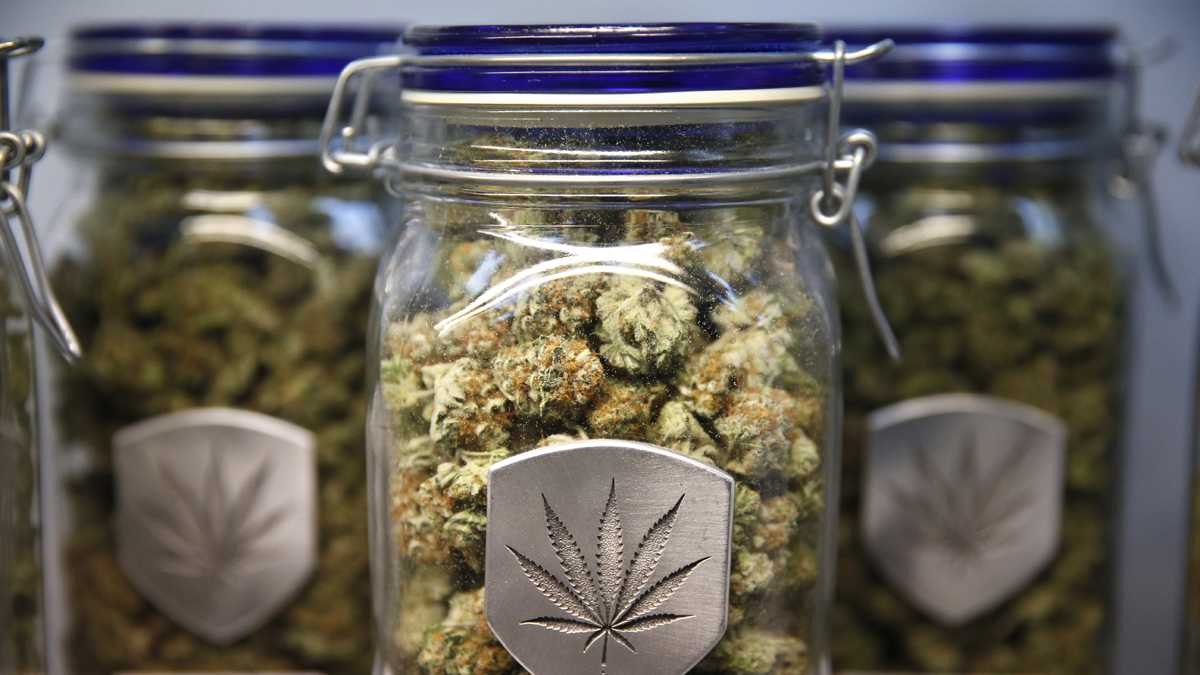Do states that offer medical marijuana have lower rates of opioid painkiller overdoses?
Listen
(Brennan Linsley/AP Photo, file)
New research explores a potential relationship between legalizing medical marijuana and the number of opioid overdose deaths.
New research explores a potential relationship between legalizing medical marijuana and a decrease in opioid overdose deaths.
The study was published this week online in the Journal of the American Medical Association, Internal Medicine.
“I had heard from many of my patients that marijuana worked better than opioids to control their chronic pain,” said lead author Marcus Bachhuber. Bachhuber is an internist, and part of the Robert Wood Johnson Clinical Scholars program at the Philadelphia VA.
“In talking with colleagues, we had wondered how this might play out in states that offer medical marijuana,” said Bachhuber. “Would patients switch, or decrease their opioid dose? Might we see lower rates of opioid overdose deaths?”
Bachhuber says about 60 percent of people who overdose on opioid painkillers and die have legitimate prescriptions from a single provider. The other 40 percent have prescriptions from multiple providers, or get the drugs from other sources.
Bachhuber and colleagues at two other institutions reviewed death certificates provided by the Centers of Disease Control and Prevention. They looked at rates of prescription painkiller overdoses in all states from 1999 to 2010, and compared states that had medical marijuana and those who didn’t.
“We found that in the years after the implementation of medical marijuana laws, there was about a 25 percent lower rate of prescription opioid painkiller overdose deaths,” said Bachhuber. “It’s important to note that this wasn’t a 25 percent decrease, it was a 25 percent lower rate than we would have expected, based on the previous trends, and on what was happening in the rest of the country. In all states, rates from 1999 to 2009, the rate of painkiller overdoses increased.”
Bachhuber says the research does not indicate whether or not the patients were switching from opioid painkillers to medical marijuana.
He says what is known is that in states that publicize information on why patients are registered for medical marijuana use, the vast majority lists chronic pain as the reason. “For example, in Oregon over 90 percent of people registered for medical marijuana report chronic or severe pain as the reason,” said Bachhuber.
He says the study has gotten mixed reactions, and adds that this is a very controversial and political topic.
“I would say that from the beginning, it was important to us to be open about the limitations of our study.”
He says the difficult question of correlation versus causation often vexes researchers.
“Usually we would test our hypothesis in a randomized controlled trial, where we give patients one treatment or another, and I can’t see how we would do this here,” he said. “In situations like this, we’re left to analyze the data that’s out there. We controlled for differences between states, but maybe states were trying to address the overdose problem at the same time they legalized medical marijuana, and that’s what caused the reduction in overdose deaths.”
Bachhuber says for follow up research, he’d like to track people over time, to see how medical marijuana laws might shift individual behavior and painkiller use.
WHYY is your source for fact-based, in-depth journalism and information. As a nonprofit organization, we rely on financial support from readers like you. Please give today.




